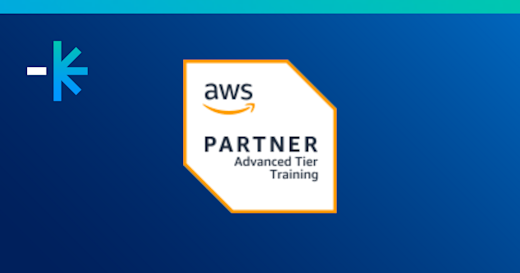Got a question? Call 1800 853 276 | Login
Cloud computing has taken Australia’s economy by storm, with their services poised to hit $10.3 billion by 2022.
These platforms have experienced growth across companies of all sizes, with 42% of the nation’s businesses having now adopted the practice. It’s a facet of modern technology that benefits employers, workers, and their customers alike, with a myriad of providers now on the market.
So, what exactly are the advantages of adopting cloud platforms – and how much storage should a small business aim for?
The benefits of cloud storage
In the modern business world, cloud storage has become a staple.
With the need to produce multiple backups of critical data, physical hard drives and data centers can do a number on business budgets. They also take up plenty of time, effort, and extra expenses to maintain – along with the risk of theft or natural disaster (statistics show that physical data centers have 51% more security breaches than cloud services).
Thankfully, cloud storage relieves this strain by securing all digital files on an online server – providing instant, 24/7 access to permitted users with an internet connection; an automated backup system, and multi-level security.
Most, if not all, cloud providers also provide scalable infrastructure, allowing a business to expand or minimise features according to their current requirements.
As such, using a cloud platform for business allows one to save on extra equipment costs, with the option to pay only for what they currently need; provides greater data security, and enhances worker collaboration.
How much cloud storage should a small business have?
Today’s users have a generous selection of cloud storage options, with multiple terabytes commonly available.
Cloud providers typically offer businesses with various tiers to choose from, with the option to scale across packages according to their storage needs. Some even provide a “free tier” with as much as 50 gigabytes of space.
Regardless of size, storage will depend on the business and their data requirements. Below are commonly-used cloud providers with expansive storage options and reliable infrastructure.
G Suite Business
Google Drive has been lauded for cost-efficient solutions that offer individuals, businesses, and large enterprises with a generous file storage options.
Their business package comes at $15.12 AUD a month, and users are offered with unlimited cloud storage – or an allocated 1TB per user for teams with less than five. The platform also comes with a suite of office programs including Google Docs, Sheets, and Slides; streamlining collaboration and saving you expenses on Microsoft Office packages.
Users can work on cloud files directly, or edit them offline before syncing them up with other connected members.
Those on Android have the benefit having Google Drive integrated on their devices, though its features are commonly enjoyed by users of other platforms. It’s likely your business already uses much of Google’s services (such as Gmail or Adsense), so adoption of their cloud platform should be an easy, suitable process.
The service also has a free tier of 15 GB for those looking to trial the service or who don’t require much data space.
Mega
Mega is a popular choice among cloud users, primarily for their generous free tier of 50 GB. Small businesses who require more space can choose from four other tiers of storage – all of which fall under $50 AUD. Their largest package, offering 8 TB of storage, clocks in at around $46 AUD a month.
The platform is therefore a company’s most economic cloud option; with a simple, drag-and-drop interface to boot. Users can enjoy global access from all web browsers, mobile devices, and desktop computers, real-time collaboration features and high-level security. As your small business grows, the service has features for automatically adding new contacts to your connected team.
Mega ensures secure protection of all its data files through end-to-end encryption, with an open-source sync client that allows tech experts to check for any vulnerabilities. Communication privacy is also established through encrypted chat, offering safe file-sharing and audio or video calls.
Additionally, they offer a convenient mobile app, that allows users to upload and sync files on the go.
Microsoft OneDrive
Microsoft’s OneDrive for business also has a competitive edge in pricing; charging only $11 AUD a month for $7 TB per user. While it isn’t as generous as the previous two platforms, the service also offers free storage space of 5 GB.
Microsoft users can easily access OneDrive through Windows 10’s File Explorer, with the platform naturally integrated into the system. Its business package allows users to upload files of up to 15 GB in size, with the option to sync local copies of documents for offline use. Just like Google Drive, users can also edit files directly from a browser.
Should you upgrade to Office 365 Business Premium, you also gain access to all essential Office applications – these including PowerPoint, Word, Excel, and Outlook. The license covers updated Office apps on five desktops, five phones, and five tablets per user – a suitable deal for any growing business. Currently, this package charges users $17.20 a month on an annual commitment, or $20.60 a month on a monthly commitment.
If these fancy bells and whistles aren’t necessary, however – you can also opt for their unlimited cloud storage offer, which goes for $14 AUD a month without additional Office applications.
Other features to watch out for
As mentioned, with large storage spaces being commonplace – sizes aren’t so much a differentiator as other unique features of quality cloud service.
When selecting cloud provider for your business, it’s important to determine whether they’re responsible for their own infrastructure, or outsourcing their storage to another provider. While some services manage their own data centers, others turn to IaaS providers such as Amazon Web Services (AWS).
Should your vendor be involved with a third party, it helps to check that platform’s track record and industry reputation. Consider their security systems, the amount of data centers they have, and the reliability of their infrastructure.
Of course, it’s also important to examine a cloud provider’s safety features and disaster recovery provisions. What systems do they have in place to secure your data – and are they enough? How efficient are they with file recovery? Be sure to also take note of how they deal with platform downtime, and that their customer communication tools are sufficient during times of disruption.
Finally, before signing that vendor contract, be sure to consider their level of migration support and exit provisions – ensuring smooth data transition onto and away from the platform.
Looking to boost your skills in cloud computing?
Cloud computing is a must in the modern business world, with tools and services that enhance productivity, security and workplace collaboration.
We offer vendor-certified courses in cloud computing and management. From programs specific to platforms such as Google Cloud or Microsoft Azure – to general training in cloud development and application, workers and employers alike are sure to sharpen their skills in this growing technological field.
Upgrade your business today, and enquire with us on a course.
View courses that we created and curated for SMBs. Download our eBook on grants for small businesses and training options.










